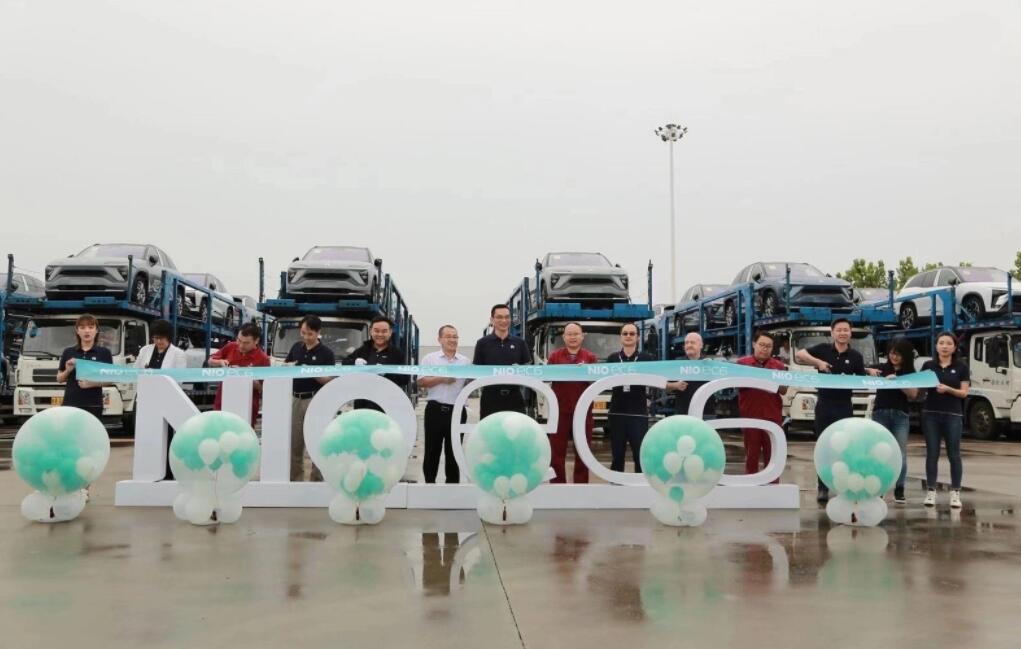China's top investment bank CICC has raised its 2020/2021 net profit forecast on BYD by 11%/3% to RMB 4.5/5.4 billion due to profit boost from higher sales of BYD's premium car model Han.
In a report released on Monday, CICC said BYD will remain one of the most important players in the new energy vehicle sector, with positive long-term logic.
The investment bank raised the valuation of BYD's new energy vehicle and battery business, and raised its long-term target price of A-shares by 45% to RMB200, corresponding to 25% upside potential.
CICC also raised its target price on BYD H shares by 45% to HKD200, corresponding to 30% upside, and maintained its outperform industry rating.
BYD's recently released financial report showed that its revenue for the third quarter was RMB44.52 billion, up 40.7% year-on-year and up 9.1% from the previous quarter. The company's net profit attributable to the parent company for the third quarter was RMB1.75 billion, up 1,363 percent year-on-year and 13.0 percent from the previous quarter, which CICC believes is in line with the results forecast.
CICC said new energy high-end models and BYD electronics helped boost earnings. The resilience of the company's net profit in the third quarter was mainly due to the contribution of new energy high-end models and BYD Electronics.
BYD sold 110,000 vehicles in the third quarter, up 2.4 percent year-on-year and up 13.3 percent from the second quarter. Third-quarter sales of 50,000 new energy vehicles were up 7.0% year-over-year and 30.6% from the second quarter.
CICC said BYD's sales growth was lower year-on-year, but revenue and profit growth was significantly higher than sales, mainly due to positive changes in model mix.
In particular, BYD Han sales were 11,000 units in the third quarter, which was purely marginal incremental, while sales of 3,851 high-unit, high-margin new energy commercial vehicles doubled year-on-year in the third quarter, thus driving a big increase in earnings.
BYD Electronics' net profit attributable to the parent company for the third quarter was RMB1.86 billion, up 312.2% year-on-year. This was mainly due to higher shipments of glass ceramic and smart products, as well as the mask business.
CICC said BYD's fourth-quarter guidance did not take into account the contribution from masks, and there was room for upward revision.
BYD expects full-year 2020 earnings of RMB 4.2 billion - RMB 4.6 billion in its third-quarter results, corresponding to a fourth-quarter profit of RMB 790 million - RMB 1.19 billion, down significantly from the third quarter.
However, BYD said, due to the greater uncertainty in the mask business, for the sake of soundness, the guidance does not take into account the possible earnings contribution of the mask business. Therefore, if the mask can still contribute to earnings in the fourth quarter, the company's fourth quarter results also have room for upward revision.
Since the beginning of the year, BYD has experienced a series of catalysts such as the release of the bladed battery, the introduction of strategic investments in its semiconductor business, and the listing and hot sales of Han, and its share price has continued to rise.
CICC has observed that the recent record highs in US share prices of new carmakers such as Nio, Xpeng and Li Auto have already included more expectations for the longer term.
As such, CICC also takes a longer-term view on BYD's new energy vehicle business valuation.
Based on the assumption that China's new energy vehicle penetration rate will reach 20% and BYD's market share will reach 15% by 2025, which corresponds to the company's sales volume of 900,000 new energy passenger vehicles, CICC assigns BYD's new energy vehicle business 2 times 2025e P/S, corresponding to a valuation of 255.9 billion yuan.
This compares to 3-4 times the 2025e P/S of the new carmakers like Nio.
CICC also valued BYD's power battery business at RMB 2015 billion, BYD's semiconductor business at RMB 40 billion and BYD Electronics at RMB 49.5 billion.



